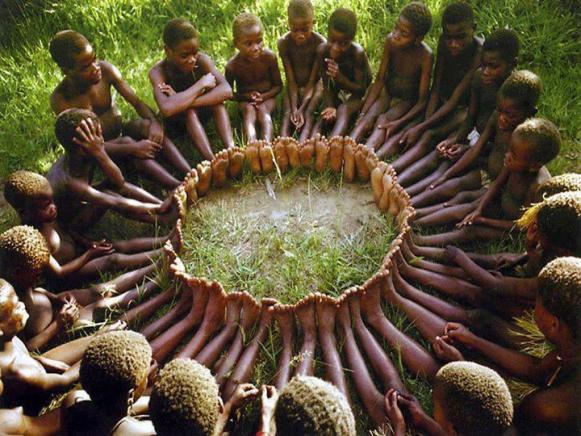Ubuntu: I Am Who I Am Because Of Who We All Are
“One of the sayings in our country is Ubuntu – the essence of being human. Ubuntu speaks particularly about the fact that you can’t exist as a human being in isolation. It speaks about our interconnectedness. You can’t be human all by yourself, and when you have this quality – Ubuntu – you are known for your generosity. We think of ourselves far too frequently as just individuals, separated from one another, whereas you are connected and what you do affects the whole World. When you do well, it spreads out; it is for the whole of humanity.
– Desmond Tutu
“A traveler through a country would stop at a village and he didn’t have to ask for food or for water. Once he stops, the people give him food, entertain him. That is one aspect of Ubuntu, but it will have various aspects. Ubuntu does not mean that people should not enrich themselves. The question therefore is: Are you going to do so in order to enable the community around you to be able to improve?”
– Nelson Mandela
Community is the fundamental part of our human identity. We learn who we are because of the way our families, neighborhoods, schools, and friends have shaped us. Many cultures have tried to define this sense of togetherness and connection to others using words like empathy, or collectivism. Perhaps the best way to describe it is a simple South African word with roots reaching as deep as humanity itself: Ubuntu, which means “I am who I am because of who we all are.” It is the ultimate statement of community, to share success and failure, joy and pain, help and suffering with one’s fellow man. Ubuntu is the human spirit at its highest, emphasizing the virtues society holds dear and seeking to share those virtues with one another in a community of friendliness and collaboration.
The philosophy that encompasses three deeply held traditional maxims in African culture: to affirm one’s own humanity by recognizing the humanity in others and in turn establish respectful, generous, and humane relationships with those others; to always value the preservation of human life over wealth and greed; and for leaders to always remember their status and power comes from the will of the people below them.
The concept of Ubuntu is known by many names throughout Africa: Botho in Botswana, utu in Kenya, unhu in Zimbabwe, obuntu in Uganda. It has spread towards all cultures, influencing everyone from Theodore Roosevelt, to Bill Clinton, to Madonna, to the Boston Celtics. The Sanskrit phrase Vasudhaiva Kutumbakam prevalent in traditional Hindu means “the world is one single family”. Mahatma Ghandi wrote of Sarvodaya, the progress for all or “universal uplift” that was the cornerstone of his philosophy. Cicero famously wrote non nobis, sed omnibus – “not for us, but for everyone” as part of his belief that all men have a natural kinship and should interchange acts of kindness. The name Ubuntu survives today in its namesake computer operating system, notable for being completely free so that users can experience its flexibility and open-source customization.
OurPangea’s ideals are the same as all of these. We believe the world is connected and seek to bring humanity together to share in our hope for the future. Together we can provide for Nelson Mandela’s traveler – we can enrich each other to promote a sense of good in our hearts, in our homes, and in our world.





Trackbacks & Pingbacks